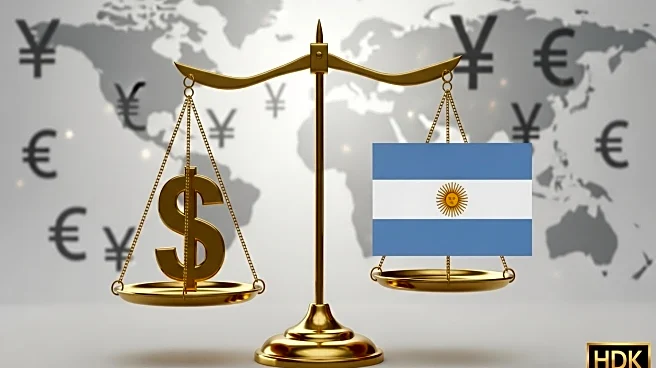What's Happening?
President Trump, alongside Treasury Secretary Scott Bessent, has authorized a $20 billion bailout to Argentina during a period when the U.S. government is shut down due to funding issues. This decision has raised concerns about the use of taxpayer money for international financial aid while domestic operations are halted. The move is seen as part of a pattern of self-dealing, where Trump is accused of leveraging his position to benefit personal and familial interests. The timing of this bailout, amidst a government shutdown, has intensified scrutiny and criticism from various quarters.
Why It's Important?
The decision to send a substantial financial aid package to Argentina during a U.S. government shutdown highlights potential priorities and governance issues within the current administration. Critics argue that this action exemplifies authoritarian tendencies, where executive power is used to make unilateral decisions without broader governmental consensus. The allocation of taxpayer funds for international bailouts, while domestic services are suspended, could impact public perception and trust in government operations. This situation may also influence political discourse, with opposition parties likely to use it as a point of contention in upcoming elections.
What's Next?
The bailout decision may prompt legislative and public backlash, potentially leading to calls for increased oversight and accountability in executive financial decisions. Political leaders and civil society groups might organize protests or campaigns to challenge the administration's actions. Additionally, this could lead to further investigations into the administration's financial dealings and decision-making processes. The situation may also affect international relations, as other countries observe the U.S.'s financial priorities during domestic crises.
Beyond the Headlines
This development raises ethical questions about the balance between international aid and domestic responsibilities. It may lead to discussions on the role of executive power in financial decisions and the need for checks and balances. The situation could also trigger debates on the transparency of government actions and the influence of personal interests in public policy.








